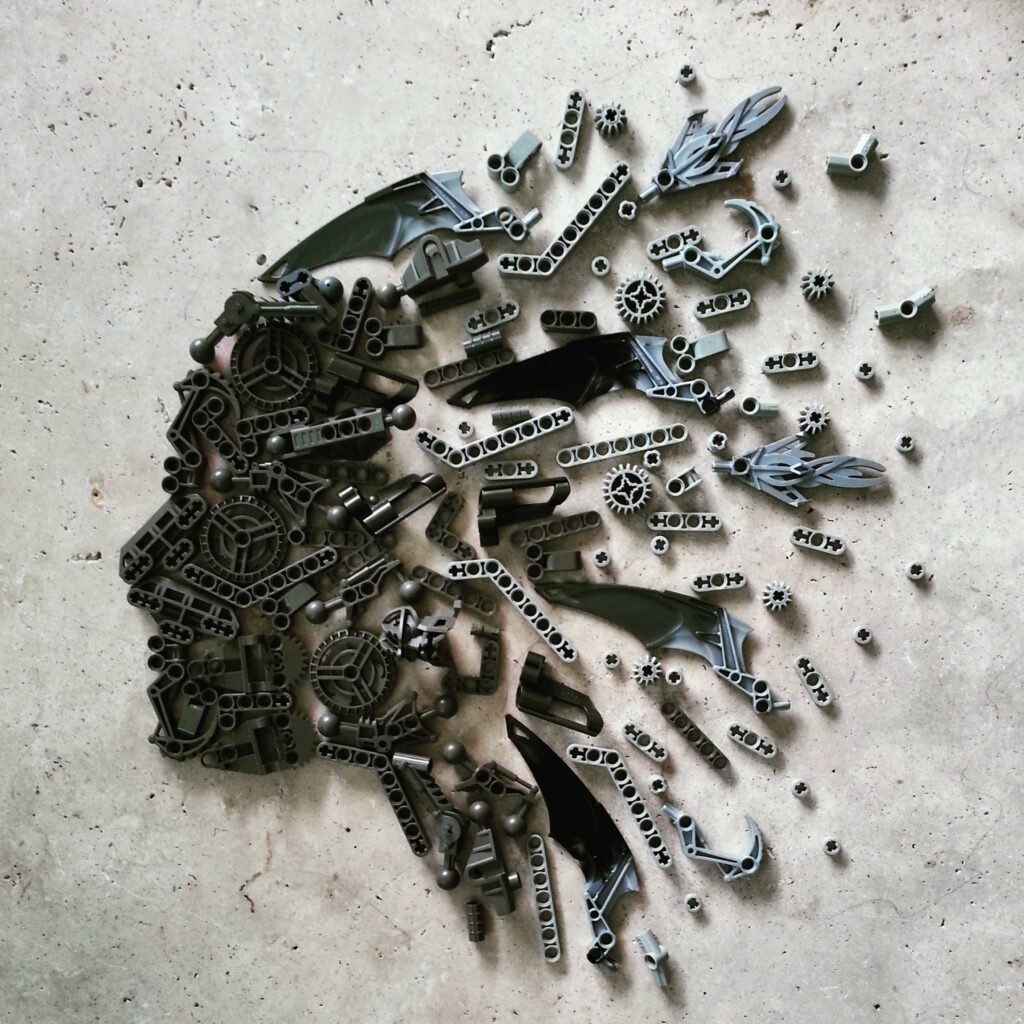‘Now, all human actions are either the result of man’s efforts or not. Of the latter some are due to…
‘Now, all human actions are either the result of man’s efforts or not. Of the latter some are due to chance, others to necessity. Of those due to necessity, some are to be attributed to compulsion, others to nature, so that the things which men do not do of themselves are all the result of chance, nature, or compulsion.’
Yes, this is a quote derived from Greek philosopher Aristotle, an expert on human activity.
You might ask why. Why does this pertain to marketing? What does theoretical philosophy have to do with business?
Good questions.
‘Thus all the actions of men must necessarily be referred to seven causes: chance, nature, compulsion, habit, reason, anger, and desire.’
These “seven causes” are natural processes that cover a wide range of all human activity. You’re not expected to study and graduate from college in theoretical philosophy to understand the basics. Think of these as insights into human activity and the impact they can have in your business.
All of the seven causes spelled out above are known as “Aristotle’s 7 Causes of Human Action”.
Now, let’s take a moment to break down each cause and the impact they have.

Keep in mind that theoretical philosophy and practical philosophy differ in that the first is Aristotle’s aim at contemplation and a deep level of understanding, while the latter aims at action or production.
In each of the seven causes below, we are focused more on action and how each cause drives us to take action as human beings.
Our approach will be more centered, therefore, on practical philosophy.
Chance events occur naturally, all the time, often affecting us individually very little. Some chance events can have a profound impact on us. Some chance events are weighted heavily in our lives, forcing us to take charge, thus motivating us into action.
‘The things that happen by chance are all those whose cause cannot be determined, that have no purpose, and that happen neither always nor usually nor in any fixed way.’
Naturally occurring, also known as innate desires are subconscious human needs – hunger, thirst, the desire for nourishment and the primal need to procreate. As Aristotle describes them, naturally occurring events stem from a fixed, internal cause that happen without thought.
‘Those things happen by nature which have a fixed and internal cause; they take place uniformly, either always or usually.’
Compulsions stem from a feeling of needing to act, even when we may not want to. Aristotle said compulsions occur ‘contrary to the desire or reason of the doer’. To act compulsively is to do in response to a feeling of need; an internal feeling. These events typically occur with little to no thought as well.
‘Those things happen through compulsion which take place contrary to the desire or reason of the doer, yet through his own agency.’
This is yet another unthinking action we take as humans.
Although habitual acts are an unthinking action, they are typically pleasant and useful. As opposed to compulsion, habits are carried out because they have taken place before. Through our study of Aristotle’s teachings, we find that habits are categorized as pleasant. Habitual actions are things that we do without thinking, and are typically good for us as humans.
‘Acts are done from habit which men do because they have often done them before. Habit, whether acquired by mere familiarity or by effort, belongs to the class of pleasant things, for there are many actions not naturally pleasant which men perform with pleasure, once they have become used to them.’
Rational and reasoned actions apply to achieving something that serves a personal goal. Also seen as useful, actions taken due to reasoning are usually for a purpose, or as a ‘means to an end’, as Aristotle describes it.
‘Actions are due to reasoning when, in view of any of the goods already mentioned, they appear useful either as ends or as means to an end, and are performed for that reason.’
Anger can be closely attributed to passion, sometimes leading us to take extreme action. Although it’s closely related to revenge, it often loses its fire when there is no potential for vengeance.
‘To passion and anger are due all acts of revenge…no one grows angry with a person on whom there is no prospect of taking vengeance, and we feel comparatively little anger, or none at all, with those who are much our superiors in power.’
The craving for pleasure; desire.
As noted by Aristotle, wealth or poverty is not a cause of action, although the appetite for wealth may drive people or motivate them.
Appetite is the cause of any action that appears pleasant. He attributes appetite conversely to rich versus poor men. He says that poor men have an appetite for wealth since they lack it, while rich men have an appetite for pleasures, as money is no object to them. Regardless of the internal drivers here, he claims their actions will be due to their appetite, not their desires for wealth or pleasures, under both circumstances.
‘Nor, again, is action due to wealth or poverty; it is of course true that poor men, being short of money, do have an appetite for it, and that rich men, being able to command needless pleasures, do have an appetite for such pleasures: but here, again, their actions will be due not to wealth or poverty but to appetite.’

For marketing purposes, think of each cause as a motivator that drives people in different ways.
Some people are more affected by certain causes than others.
So, If you can understand HOW the seven causes affect people in specific but different ways, then you can better influence and motivate them to choose your brand over the competition.
It’s simple psychology, but understanding the ‘how’ might be the golden ticket to reach your brands’ target audience.
‘In short, all things that men do of themselves either are, or seem, good or pleasant; and since men do voluntarily what they do of themselves, and involuntarily what they do not, it follows that all that men do voluntarily will be either that which is or seems good, or that which is or seems pleasant.’
Yes, another Aristotle quote. Just stay with me here – it will come together.
So you may be asking, how do these causes apply to my business? How do they all tie in? Aristotle doesn’t live in the here-and-now.
You’re right – he doesn’t.
Yet these ancient concepts can still be applied, right here and right now.

Without digging too deep, the first rule of the customer experience is to understand your customers.
Your brand and business should know what their needs are, what their pain points are and what their expectations of your brand are. It will be much easier to meet and exceed their expectations when you do.
Know your customers, and know them well.
You’ll be on your way to building a more lasting relationship with your customers based on the seven causes, without even realizing it.
It’s also essential to know and really grasp WHY your customers do what they do.
Why? So you can better target their needs.
Circling back to Aristotle, he claims that all actions are due to either emotion or reasoning.

Author of ‘Aristotle: The Original Marketing Guru’ says that understanding human psychology is essential for those developing marketing tactics.
Some of the best marketers in the business are psychology experts, because we use various methods to encourage the masses to purchase our goods and services.
Due to the complex nature of human beings, marketing today is far from a simple, clear-cut process. She claims that for this reason, it is beneficial for marketers to study the philosophical geniuses who have outlined psychological principles of human instincts.
Do you see now why Aristotle is important here?
Throughout history, Greek philosopher, critic, zoologist and physicist Aristotle has provided insight that has gone largely unmatched, offering a look inside the minds of people and why they do what they do. He highlights them through the seven causes of human action.
She further expands on this, claiming it is our job to know what our customers desire. We need to make them believe we’re selling them what they want.
Some of the best marketing campaigns create a deep sense of longing and need that plays on this core concept. The idea and goal is to convince people they REALLY want what your brand has to offer and that your brands’ product will truly make them happy.
Master these tactics and you’ll be exploding with customer loyalty, ultimately building true ‘brand bonds.’
Simply put, the marketing idea in relation to the seven causes of human action is this: Use the seven causes to surpass your competition by capturing the minds and hearts of your target audience.
Pay close attention to the ever-changing and beating pulse of your customers’ needs and wants, but also stay committed to understanding the innate human psychology that drives it all.
These combined ideas will keep your marketing efforts moving in a positive direction, driving more results for your business and brand.

Oh, and one last thing.
Please, please, please – KEEP IT SIMPLE.
Make it easy for consumers to navigate your website. Confusion kills brands in marketing terms.
If you have too many clicks and call-to-action buttons, people are way more likely to leave your site, post-haste.
You don’t want to run people off by asking them to do too much.
Some things are better left to chance, but your brand isn’t one of them.
Just ask Aristotle.
Copyright © 2017-2025 · Carbon Digital · All Rights Reserved.